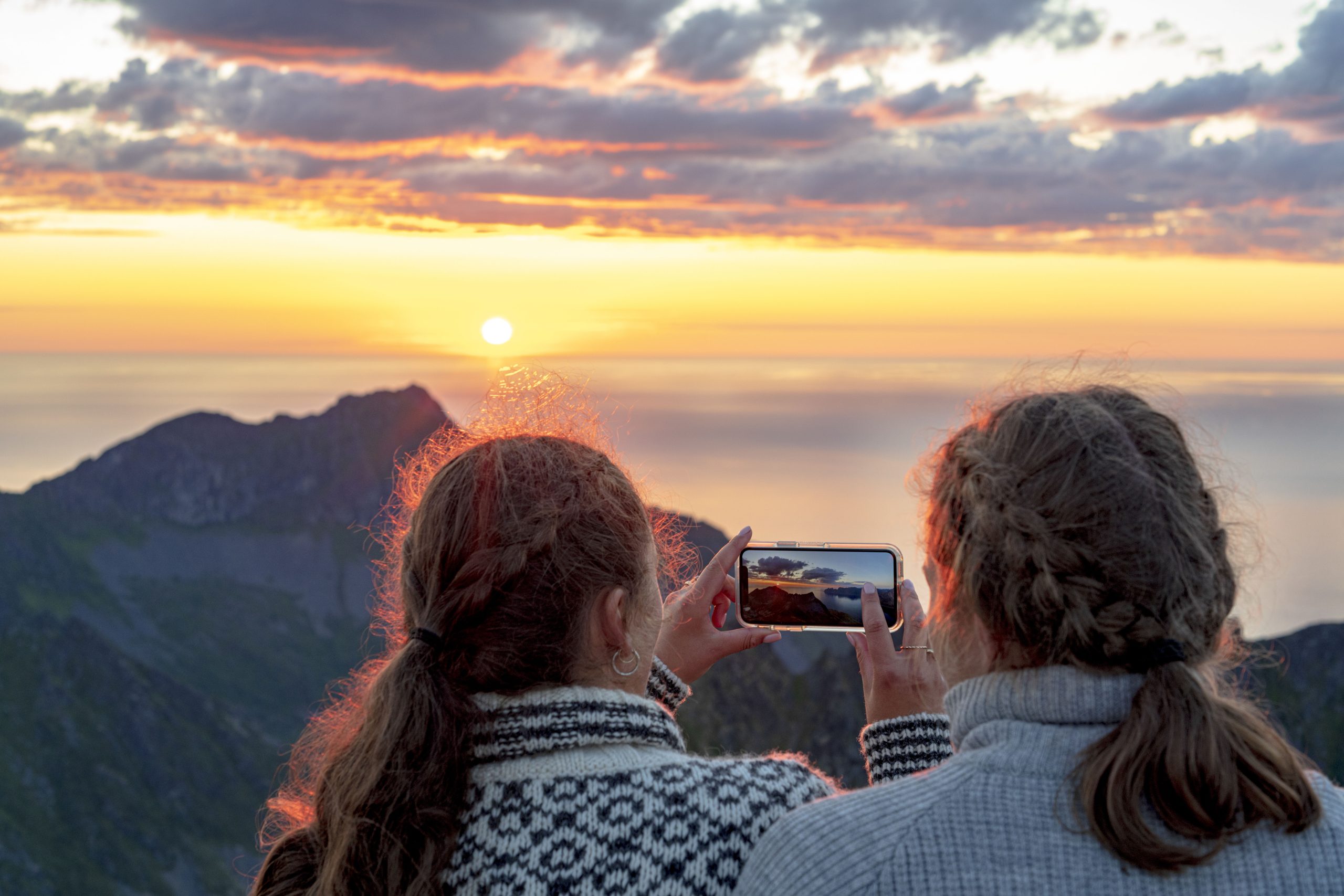TORONTO – OCTOBER 16, 2024 – Booking.com’s annual Travel Predictions research* reveals that
travellers are ‘rewriting their playbook’ in 2025, defying the norms of age, gender, or simply what society thinks travel
should look like for them. From nighttime exploration to thrill-seeking seniors, travellers are stretching their wings to fuel and find long-lasting personal growth. Booking.com commissioned research among more than 27,000 travellers across 33 countries and territories to present nine travel predictions that foresee 2025 ushering in new ways of experiencing the world.
Arjan Dijk, Senior Vice President and CMO at Booking.com comments: “Canadians, like most of the world, are feeling the stresses of accelerating change across multiple fronts. Global elections, rapid AI advancements, and increased costs of living, to name a few, have us feeling fatigued, needing to withdraw, pick a side, or simply disconnect. Yet, in the face of this rising uncertainty, we’re seeing just the opposite in travel. In 2025, we expect change makers to take the lead as travel moves away from tradition and we become more attuned to our own desires and needs, as well as those of the destinations we want to visit. We continue to see travel as a force for good that can uplift local economies, nourish personal growth, shatter misconceptions, and strengthen relationships. Reimagining travel is in our DNA at Booking.com and we will continue to find innovative ways to make it easier for all travellers to forge their own path in 2025 and beyond.”
SKI Trips: Boomers will throw caution to the wind in favour of multigenerational megatrips
Forget a restful retirement; baby boomers are rewriting the rules on travel, showing the rest of the generations what ‘living their best life’ is all about. ‘Ski’ vacations will be on the rise – but not on the slopes – as parents flip priorities by Spending Kids’ Inheritance (SKI) instead of squirreling their savings. Nearly half of Canadian travellers (42%) would rather spend money on the trip of a lifetime in 2025 than leave inheritance to their children.
But next year, this trend will take on an increasingly altruistic approach, as older relatives look to splash the cash among their families, helping the younger generations through the cost of living crisis by paying for their next vacation.
While 51% of Canadian travellers admitted that their parents had already paid for their vacations or part of their vacations since being an adult, boomers are likely to influence an uptick thanks to the 76% who are happy to pay for their children when booking their next trip and 79% for their grandchildren. Prepare for more multi-generational trips courtesy of the Bank of Mom & Dad, as grandparents, parents and grandchildren pack their bags together for the ultimate bonding experiences.
Not only will boomers be opening their wallets in 2025, but an emerging cohort are also expected to defy their years and conventional expectations in favor of thrill seeking in 2025. 37% of this generation within Canada are interested in adventure vacations (up from 20% in 2024**). Easing their way into an era of adrenaline, nearly a third (41%) are interested in horseback riding and 23% are interested in letting go of their inhibitions at a wine rave.
NocTourism: Travellers have their head in the clouds as they look towards
celestial happenings, cooler climates, and midnight magic
As space tourism edges ever closer to reality, many will be focused on building connections with the universe as they turn to more attainable astro-pursuits in 2025. Ditching the daylight crowds for midnight magic, over half (58%)of Canadian travellers are considering visiting darker sky destinations with starbathing experiences (58%), star guides (53%), once in a lifetime cosmic events (54%), and constellation tracking (52%) top of their stellar adventure lists.
Concerns around climate change have also influenced this shift, with 56% planning to elevate their nighttime pursuits to avoid rising daytime temperatures and 24% preferring to vacation in cooler locations. Protection from UV rays is important for 61% of Canadian travellers who say they plan to reduce the amount of time they spend in the sun, while more than half (54%) will be planning activities in the evenings and early mornings when the sun is at its lowest.
An appreciation for the nocturnal world is also deepening our connections with nature, as most Canadian travellers (54%) would book an accommodation without lights to encourage less light pollution and preserve flora and fauna.
Boyz II Zen: Male travellers will abandon bravado and embrace more fulfilling group travels
Booze and bravado are set to take a back seat, as activities that prioritize more mindful male bonding will prevail in travel in 2025. Nearly half (43%) of Canadian travellers agreed that they would encourage one of the men in their life to go on a men-only trip, jumping to 61% for Gen Z, and 56% for millennials. 24% of Canada’s male travellers are abandoning societal expectations and ‘bro culture’ cliches to switch off from the stresses of everyday life, 30% to rest and rejuvenate, 26% in pursuit of mental health benefits, 23% personal growth. Building connections, both old and new, will be crucial with more than a quarter (27%) looking to make new friendships, and 21% looking to improve their relationship building with friends and family.
And further defying expectations, it’s women persuading the men in their lives to go on a men-only trip, with 58% encouraging their partner, 31% their friends, 24% their brother, and 17% their father to put their personal wellbeing first.
The Gate Escape: Travellers will be on board with airports stepping up their appeal
Gone are the days of arriving ‘just in time’ to avoid dull airport time-killing, as travellers reframe their 2025 vacation kick-off to embrace a new era of airport entertainment. More than half (59%) of Canadian travellers are curious about airports with more unique experiences or facilities, and a quarter (27%) express an interest in visiting somewhere because of its airport.
But it’s Canada’s Gen Z and millennials who look set to fuel this trend. Among both, 41% are keen to consider destinations based on their airport, rejecting stressed-out stereotypes in favor of indulgent experiences, like sleep pods (43% Gen Z, 39% millennials), spas (32% for both Gen Z and millennials), and Michelin star restaurants (18% Gen Z, 19% millennials).
With half of Canadians (52%) suggesting they would feel more excited about their trip if there were a wider array of facilities for use prior to their flight, vacations will start well before you board the plane.
Passport to Longevity: Next level health and wellness experiences may replace
the longstanding vacation popularity of booze and food indulgence
As travellers search for the elixir of life, a vacation is no longer just time to unwind. Driven by the desire to cultivate better lifestyle choices, 54% of Canadian travellers are interested in a longevity retreat – a super-charged flex on traditional wellbeing itineraries where temporary fixes are replaced in the pursuit of a longer, healthier life.
Deep revitalization is a top priority, from body vibration (50%) and red light therapies (50%), to cryotherapy (37%) and stem cell treatment (40%) as treatments Canadian travellers are seeking out. 60% are looking for new wellness activities they can mix into their daily lives, including learning about timed coffee ingestion (32%) and IV therapy (32%).
And with 55% of Canadian travellers revealing they would pay for a vacation that’s sole purpose was to extend their lifespan and wellbeing, 2025 could mark the first year of the rest of their longer lives.
Vintage Voyaging: Unique, secondhand finds are set to become
the new destination-branded coffee mug
Vacation wardrobes will get a makeover in 2025, as trendy travellers turn vintage voyagers, hitting thrift stores while on holiday to curate a more sustainable suitcase. Almost half (43%) of Canadian travellers said they would be interested in buying their vacation wardrobe during their trip rather than before, jumping to 63% of Gen Z. 58% would visit thrift stores during vacation and nearly three quarters (71%) have already bought vintage or second-hand products on their travels.
No doubt influenced by both cost and climate awareness, this shift isn’t just about style – it’s about stretching our dollars further. 56% of Canadian travellers intend to be thriftier on their trips and 67% are tightening budget planning in order to maximize their experiences, as 32% say they buy vintage on vacation because they find better bargains. Defying the churn of fast fashion and mass consumerism, 24% of Canadian travellers say they find better quality products in vintage stores abroad than at home.
A thrift trip is now more than just shopping; it’s a way to bring cultural connections back home, all while making eco-conscious and wallet-friendly choices. Move over fridge magnet, vintage clothes are the new souvenir of choice.
Neuroinclusive navigation will herald in a new era of comfort and ease
There is growing momentum around the need for less conventional and more inclusive approaches to travel experiences that better connect with the needs of neurodivergent travellers. Nearly half (45%) of Canadian travellers who consider themselves neurodivergent have had a negative experience while travelling due to their neurodivergence, while 44% believe their travel options are limited because of their neurodivergence.
Many Canadian travellers would like to see technology play a greater part of their travel journey and help reduce theirs, or their travel companions’, anxiety. Half (51%) are keen on AI tools that would provide them with up-to-date travel information, reports of delays and suggestions on quieter, less busy spaces in airports and hotels. Sensory rooms in airports, hotels and other locations are sought after by 72%, while 66% would like to see more ‘block out noise’ options across the travel experience.
In fact, the call for progress in 2025 is loud and clear with 66% wanting an industry-wide initiative or program that shares their needs and preferences seamlessly with airlines and accommodation providers, providing a closer connection between travellers, platforms and operators.
Travellers will tap into technology to support more sustainable travel
New technologies are already helping travellers find experiences tailored to their needs, but in 2025 we’ll see innovations that help tourists meet the needs of the destinations they hope to experience.
62% of Canadian travellers will use technology to make informed decisions that not only respect the places they visit but contribute positively to them. AI-powered tools, like
Booking.com’s AI Trip Planner, are set to play a pivotal role in shaping these journeys, with 31% of travellers interested in using AI to curate trips, helping create itineraries that encourage deeper, more positive connections with destinations’ communities.
Many will also apply a more responsible lens to how they are using technology. Half (51%) of Canadian travellers won’t tag locations on social media when visiting a lesser known destination to avoid encouraging flocks of Insta-tourists. That said, for the 48% of Canada’s Gen Z and 33% of millennials who would rethink visiting a destination if they couldn’t tag its location, technology will also play a role in finding alternatives that can be shared without the guilt of overburdening the usual hotspots. 61% are hoping to use technology to find less crowded areas and 18% are already using apps to tackle this in real time.
Related

























